Metal music is known for its intense sound and heavy, distorted guitars. It’s not surprising that many metal musicians are also known for their rebellious nature and anti-establishment lyrics. However, what you may not know is that some of these iconic figures in the metal scene have also spent time serving their country in the military.
In this article, we will take a look at some notable metal musicians who have also served in the military. From their experiences and how it influenced their music, to their views on war and conflict, we will explore a different side of these artists that often goes overlooked.
So grab your combat boots and get ready as we dive into the world of metal musicians who have donned both stage attire and military uniforms.
Table of Contents
Jimi Hendrix
One of the most influential and iconic figures in music history, Jimi Hendrix is known for his innovative guitar playing and psychedelic sound. But before he became a household name, Hendrix served in the United States Army from 1961 to 1962.
Despite his brief time in the army, Hendrix’s experience had a profound impact on him. It was during this time that he honed his guitar skills and began experimenting with different sounds and techniques.
In an interview with Rolling Stone magazine, Hendrix spoke about how his time in the military influenced his music, saying “I learned a lot about music in the army. I learned how to keep it with me all the time.”[2]
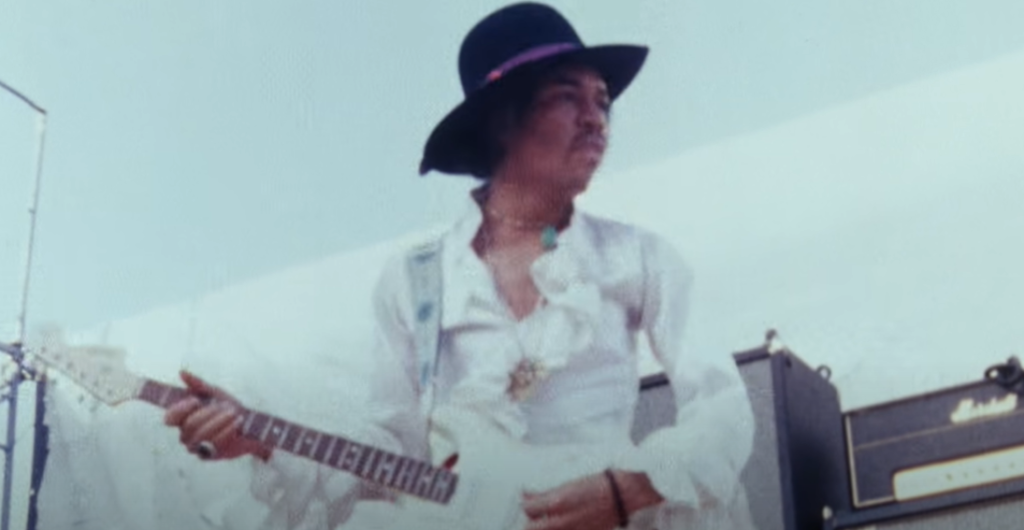
Ian Astbury (The Cult)
Ian Astbury, frontman of the English rock band The Cult, is known for his distinct vocals and powerful stage presence. However, before he found success in the music industry, Astbury had a brief stint in the British Army. At the age of 18, he joined the army and served as a rifleman for three months before being discharged due to medical reasons.
In an interview with Classic Rock Magazine, Astbury shared his experience in the military and how it shaped his views on war. He stated that although he initially joined for the adventure and to escape his troubled childhood, he soon realized the harsh reality of war and its consequences. This realization would later influence his lyrics in The Cult’s hit song “Love Removal Machine,” which speaks out against the glorification of violence and war.[2]
Ice-T (Body Count)
Ice-T, born Tracy Marrow, is best known for his role as a pioneer of gangster rap. However, before he became a successful rapper and actor, Ice-T served four years in the United States Army. He joined at 17 years old and was stationed in Hawaii where he worked as a squad leader. During his time in the military, Ice-T also served in the 25th Infantry Division and was deployed to Hawaii, Germany, and Egypt.
Ice-T’s experience in the military heavily influenced his music. His album “Body Count” with his band of the same name delves into issues of war, violence, and social injustice. The track “The Winner Loses” is a personal reflection on the effects of war on individuals and society as a whole. Ice-T also often incorporates elements of military imagery and themes in his music, showcasing the impact the military had on his life.[2]
Doug Williams (Eliminate, ex-Origin, ex-Cephalic Carnage)
Doug Williams, also known by his stage name “The Sarge”, is a well-known figure in the death metal and grindcore scenes. But before he was shredding on guitar for bands like Eliminate and Cephalic Carnage, Williams was serving in the United States Army.
In interviews, Williams has spoken about how his military experience influenced his approach to music, stating that it taught him discipline, teamwork, and perseverance. These qualities can be seen in his precise and technical guitar playing as well as his ability to work well with his bandmates.[2]
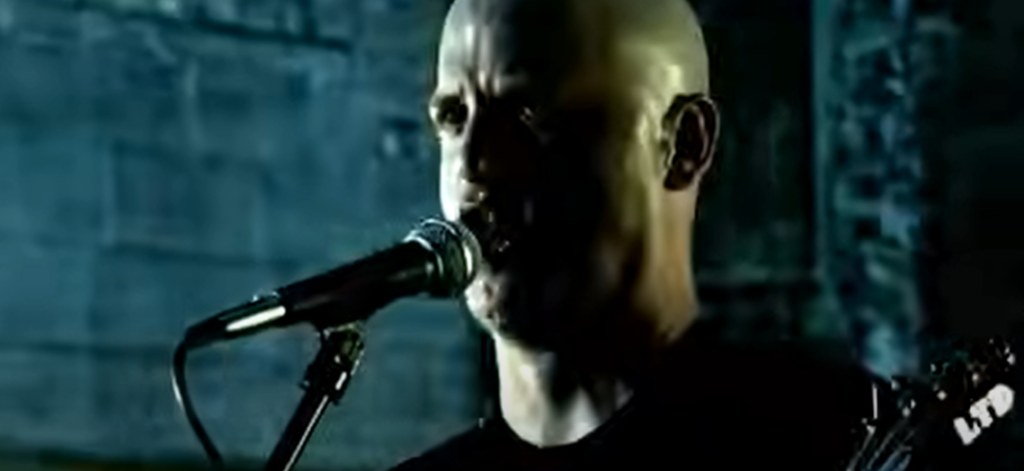
Maynard James Keenan (Tool)
Maynard James Keenan is the lead vocalist of the progressive metal band Tool. He has also served in the United States Army from 1982 to 1985. Keenan joined the military at a young age, right after graduating high school.
During his time in the army, Keenan was stationed in bases both in the US and overseas. He spent most of his time in Germany, where he was stationed at a nuclear missile silo. This experience had a profound impact on Keenan and would later influence his lyrics and overall outlook on life.
In an interview with Revolver Magazine, Keenan stated that his time in the military helped him understand the consequences of actions and the importance of taking responsibility for one’s choices. He also mentioned how it shaped his thinking and helped him question authority, which is evident in many of Tool’s songs.[3]
Bruce Dickinson (Iron Maiden)
One of the most recognizable voices in metal, Bruce Dickinson, stands out not only for his powerful vocals and energetic stage presence but also for his remarkable background in the British Royal Air Force. Before joining the iconic band Iron Maiden, Dickinson’s journey began with his enlistment in the Territorial Army. Driven by his passion for aviation, he later transferred to the Regular Forces and served as a pilot, immersing himself in the exhilarating world of flight.
In interviews, Dickinson has delved into how his military experiences have profoundly influenced his music and the thematic exploration within Iron Maiden’s songs. His unique perspective, shaped by his time in the armed forces, has provided him with a distinct lens through which he captures the essence of war and the human condition. It is within this context that he openly expresses his anti-war stance, acknowledging and respecting those who have served while firmly believing that war represents a failure of diplomacy.
Bruce Dickinson’s multifaceted journey serves as a testament to the profound impact one’s experiences can have on their artistic expression, as he continues to captivate audiences with his unparalleled vocal talent and thought-provoking lyrics.[3]
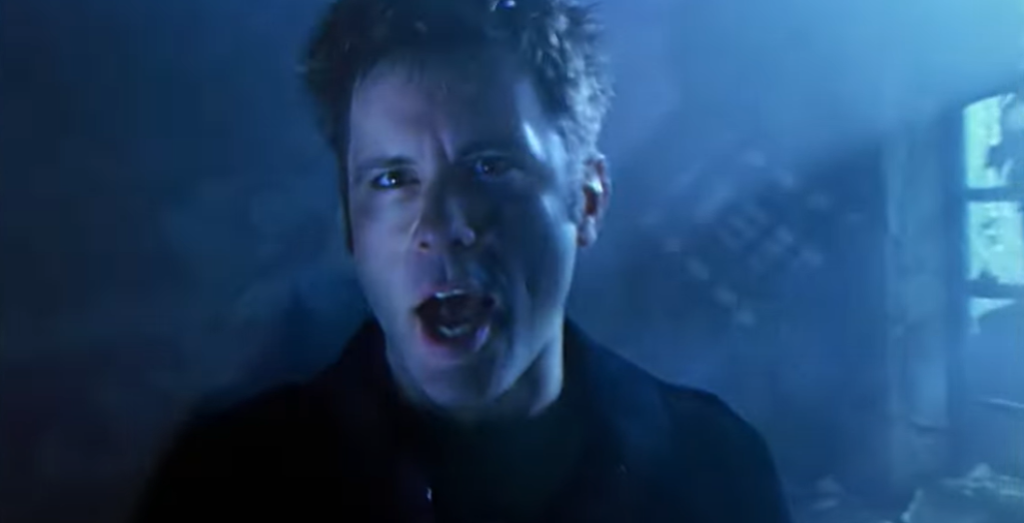
Matt Widener (Cretin, ex-Exhumed)
Matt Widener, best known as the vocalist and guitarist for Cretin and former member of Exhumed, may seem like the epitome of a rebellious metal musician. However, before he found success in the underground metal scene, Widener served four years in the U.S. Army.
During his time in the military, Widener was stationed at Fort Bragg and served in the 82nd Airborne Division. He also completed a tour of duty in Afghanistan as an infantryman.
In interviews, Widener has spoken about how his experiences in the military have influenced his music, specifically with Cretin’s album “Freakery.” The album cover features a soldier eating a baby, which Widener explains is representative of the dehumanizing aspects of war.
He also touches on the impact of war and conflict on soldiers’ mental health, a topic that he continues to explore in his music today.[3]
Phil Labonte (All That Remains)
Phil Labonte, renowned as the lead vocalist of the American metal band All That Remains, has carved a distinct path in the music industry. However, his journey to success is not solely defined by his musical prowess. Before captivating audiences with his powerful vocals, Labonte dedicated four years of his life to serving as a rifleman in the United States Marine Corps. Enlisting at the young age of 17, Labonte experienced first-hand the rigors and challenges of military life.
In a candid interview with Loudwire, Labonte delved into his military experience and how it profoundly influenced his personal growth. The military instilled in him a profound sense of responsibility, discipline, and maturity, shaping his perspective on life and artistry. Labonte firmly believes that without the Marine Corps, he would not have reached the heights he stands at today.
Notably, Labonte’s time in the Marines has left an indelible mark on his songwriting. A recurring theme in All That Remains’ music is the exploration of war and the struggles faced by individuals in their personal battles. Labonte’s unique perspective, fueled by his military background, adds depth and authenticity to the band’s impactful lyrics.
Through his remarkable musical journey and military service, Phil Labonte continues to inspire and captivate audiences with his unwavering talent and the profound influence of his experiences.[1]
Fred Durst (Limp Bizkit)
Fred Durst is widely recognized as the charismatic frontman of the immensely popular rap-metal band, Limp Bizkit. With their chart-topping hits like “Nookie” and “Rollin'”, Durst emerged as an iconic figure in the late 1990s and early 2000s music scene, captivating audiences worldwide.
However, before skyrocketing to fame in the music industry, Durst had an intriguing chapter in his life as a dedicated member of the United States Navy. In 1988, he made the decision to serve his country and joined the Navy, embarking on a remarkable journey that would shape his future. During his two-year tenure, Durst was stationed on a nuclear submarine, where he honed his skills as a boiler technician, showcasing his unwavering commitment and dedication to his duties.
It was during this formative period in the military that Durst’s profound love for music took root and flourished. The experiences and challenges he encountered while serving had a profound impact on his artistic expression. The themes of rebellion and anti-authority that permeated many of Limp Bizkit’s songs can be traced back to his time in the Navy. In a revealing interview with Rolling Stone, Durst candidly expressed, “I believe that my whole life, I’ve possessed this rebel spirit… I think it’s an inherent part of who I am, and it’s precisely why I initially chose to join the Navy.”
The fusion of Durst’s rebellious spirit and his musical talent eventually propelled him to unparalleled success, solidifying his status as an influential figure in the music industry. His unique journey, from the disciplined environment of the Navy to the electrifying stages of sold-out concerts, showcases the transformative power of personal experiences and the indelible mark they leave on artistic expression.[1]
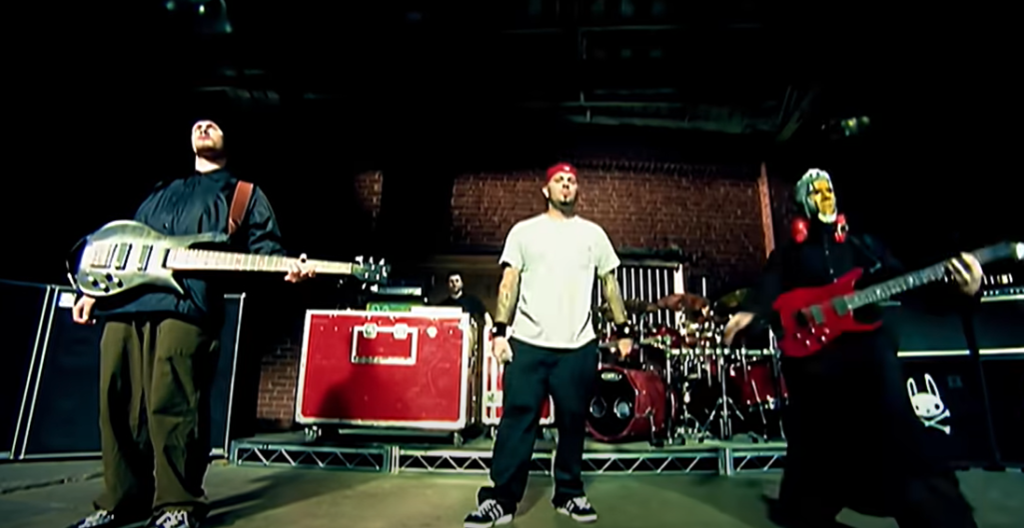
David Gregor (Morta Skuld)
David Gregor is a name well-known among death metal fans, as the lead guitarist and vocalist of the band Morta Skuld. With their aggressive riffs and intense vocals, Morta Skuld has been a prominent figure in the underground metal scene since its formation in 1990.
The experiences Gregor had during his time in the Army greatly influenced his musical style, which often explores themes of war and violence. In an interview with Metal Hammer, Gregor shared, “Being in the military had a big impact on me… I was around people who were hell-bent on having a good time before they died, which influenced my lyrics.”
Gregor’s unique perspective and experiences from his time serving in the Army have played a significant role in shaping Morta Skuld’s sound and lyrical content, making them stand out in the death metal genre.[1]
FAQ
Which famous rock artist served in the Army?
Many famous rock artists have served in the Army, including Elvis Presley, Johnny Cash, and Jimi Hendrix. However, there are also notable metal musicians who have served in the military, such as The Devil Wears Prada’s Jeremy DePoyster (US Army) and Sabaton’s Pär Sundström (Swedish Army).
What is the rock band of veterans?
The rock band of veterans refers to Five Finger Death Punch, a heavy metal band formed by former U.S. Army soldiers. The band members’ shared military background has heavily influenced their music and performance style. They have also been actively involved in supporting and raising awareness for veteran causes through their music. Other notable veteran bands include Godsmack and Disturbed, who have members with military experience.
Who was the Musician who went to war?
One example of a musician who went to war is Phil Labonte, the lead vocalist of All That Remains. He served as a rifleman in the United States Marine Corps before pursuing a music career. Other notable musicians who have gone to war include Fred Durst (Limp Bizkit) and David Gregor (Morta Skuld), both of whom served in the Navy and Army, respectively. Their military experiences have heavily influenced their music and artistry.
What singer was a soldier?
One example of a singer who was also a soldier is Dave Mustaine, the frontman of metal band Megadeth. Mustaine served in the United States Army before being discharged due to an injury. His military experience has been reflected in some of his lyrics and themes in Megadeth’s music. Other notable singers who were also soldiers include Adam Darski (Behemoth) and Corey Taylor (Slipknot, Stone Sour). Each of these musicians’ military backgrounds has played a significant role in shaping their artistic expression.
What artist fought in ww2?
There were many artists who fought in World War II, but one notable example is Johnny Cash. He served in the United States Air Force and was stationed in Germany during his time in the military. Other famous musicians who also served in WWII include Frank Sinatra, Tony Bennett, and Jimi Hendrix (although he was not actively involved in combat). These experiences greatly influenced their music and careers.
Useful Video: 10 Awesome Metal Bands From Surprising Countries
Conclusion
The music industry is home to many talented individuals who have served in the military. From Fred Durst’s rebellious spirit shaped by his time in the Navy, to David Gregor’s experiences in the Army influencing Morta Skuld’s sound, these musicians have used their unique backgrounds and perspectives to create powerful and impactful art. These metal musicians who served in the military are a testament to the transformative power of personal experiences and how they can shape creative expression. So the next time you attend a metal concert or listen to your favorite band, remember that behind the music lies stories of bravery, sacrifice, and resilience. Their journey from soldier to musician is truly inspiring and deserves recognition alongside their musical achievements. And who knows, perhaps there are even more talented individuals with military backgrounds waiting to make their mark in the music world. We can only wait and see what powerful art they will create. Till then, salute to all those who have served our country and continue to inspire us through their music. The metal community would not be the same without them.
References:
- https://www.wearethepit.com/2021/11/happy-veterans-day-here-are-10-hard-rock-and-metal-musicians-who-served-in-the-military/
- https://loudwire.com/musicians-military-veterans/
- https://q1057.com/five-heavy-metal-musician-veterans/

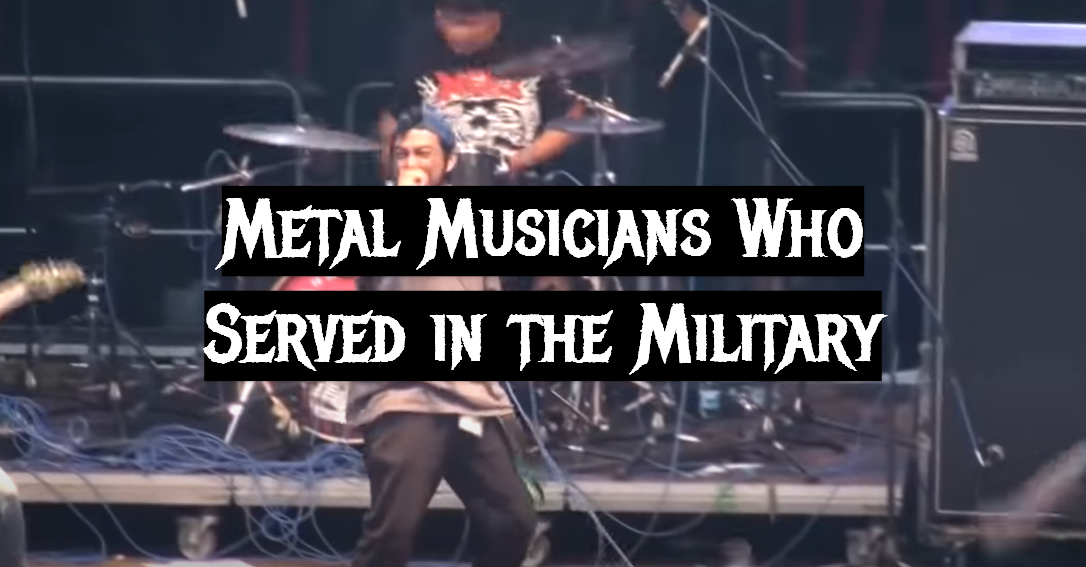
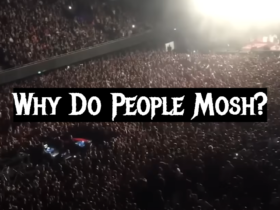

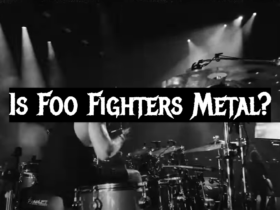

Leave a Reply